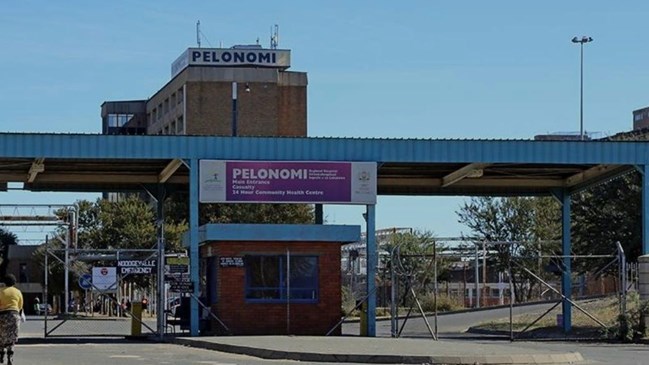Central SA
SAHRC monitors Pelonomi Hospital following DA human rights complaint─── REFILWE BEKANE 14:30 Fri, 15 Aug 2025

The South African Human Rights Commission (SAHRC) has placed the Pelonomi Tertiary Hospital under a monitoring program after concluding its investigation into a human rights complaint filed by the Democratic Alliance (DA) in 2022.
According to DA’s report, the SAHRC confirmed the DA’s findings of staff shortages, an aging and blocked sewage system, persistent infrastructure challenges, and a hospital that was visibly dirty and untidy. However, SA Human Rights Commission provincial manager Thonoko Modise claims that they have not made any findings regarding the allegations reported by the DA and the public.
“This is the letter that we sent to DA. The letter says we are closing this file, and we are placing this file under the monitoring intervention plans that the executive of the hospital has provided to the Human Rights Commission.
“And now the Human Rights Commission has not issued findings against the Pelonomi Hospital or made recommendations. What we’re doing is we are monitoring intervention plans for the Pelonomi hospital,” said Modise.
Visits to Pelonomi Hospital
Modise states that the SAHRC’s decision comes after a series of visits and engagements with the executive management and the Free State department of health.
“What we saw was that there was quite a high flow of patients recently at the National Hospital, and we also noted with concern that the maternity ward is very small and it needs to be extended.
“The hospital beds are very small in numbers now, and the hospital is also running far beyond capacity when it comes to obstetric and neonatal care,” said Modise.
ALSO READ: DA to request parliamentary hearing on Free State’s failing health system
Rather than issuing formal findings and recommendations, the SAHRC is taking a different approach. The commission has accepted an intervention plan from the hospital’s management and the head of the department (HOD) of the Free State health department.
“If the intervention plans are approved and the hospital still does not comply, we will take further action with the commissioners. This may include using other processes in our compliance manual or under our act to compel the hospital – either by making findings or through subpoena proceedings.”
The SAHRC believes these proposed interventions are reasonable and, if implemented, could effectively resolve the identified human rights violations. Consequently, the commission has opted to monitor the hospital’s compliance with these plans.
Observing the status quo
According to the SAHRC, this monitoring process involves unannounced visits by its team, including legal officers and monitors. The purpose of these surprise visits is to observe the status quo and ensure the hospital is actively working to implement its intervention plan.
The SAHRC has stated that should the hospital fail to comply with its plans or show a lack of commitment, the commission reserves the right to take more forceful action.
This could include reopening the formal investigation, issuing binding findings, or even compelling the hospital to comply through subpoena or court proceedings.














